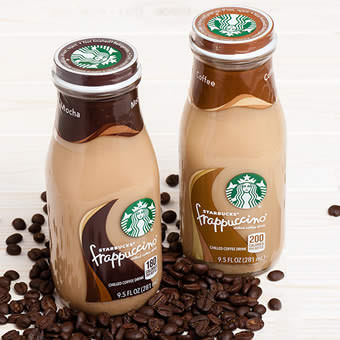Introduction
In today's quickly progressing food market, companies are looking for sustainable options to satisfy the growing need for top quality foodstuff while minimizing their environmental influence. Contract food manufacturing has become a practical option for companies wanting to outsource their production requires while keeping control over item advancement as well as quality control. This article checks out the principle of contract food manufacturing in Australia and also its duty in promoting sustainability within the food industry.

The Rise of Contract Food Manufacturing in Australia
Understanding Agreement Food Manufacturing
Contract food manufacturing is a strategic partnership in between a brand name owner and a contract manufacturer, where the latter generates items in behalf of the previous. This setup allows brand name owners to focus on marketing, item growth, and also distribution while leveraging the proficiency and resources of specialized contract manufacturers.

Benefits of Contract Food Manufacturing
Cost Efficiency: Contract food manufacturing removes the need for considerable capital expense in facilities, devices, and manpower. This cost-saving procedure allows brands to allocate their sources in the direction of other essential locations of company growth. Scalability: As demand for a particular item rises and fall, agreement manufacturers can quickly change production degrees to accommodate market requirements. This versatility makes certain that brand names can fulfill customer need without excess inventory or wastage. Expertise as well as Innovation: Contract producers typically have extensive understanding and experience in details food categories or processes. By teaming up with these professionals, brand names can take advantage of their imagination and harness ingenious options for product growth and also improvement. Quality Guarantee: With rigid quality control actions in place, agreement makers stick to sector requirements and regulative needs. This commitment to quality ensures that brand names deliver secure and premium products to customers consistently. Supply Chain Monitoring: Contract food manufacturing enhances the supply chain by consolidating manufacturing, packaging, labeling, as well as circulation under one roof covering. This incorporated method lessens logistical intricacies and improves overall functional efficiency.The Ecological Influence of Contract Food Manufacturing
Reducing Carbon Footprint
Contract food production offers opportunities to decrease the ecological influence of food manufacturing with various methods:
Efficient Source Application: Agreement producers maximize source intake by carrying out energy-saving methods, minimizing water usage, and decreasing waste generation. These lasting steps contribute to a reduced carbon footprint throughout the entire manufacturing process. Locally Sourced Active ingredients: By sourcing components from regional providers, agreement producers minimize transport ranges and also linked exhausts. This technique supports local economic situations while promoting sustainability within the supply chain. Eco-Friendly Product packaging: Agreement food suppliers emphasize making use of green product packaging materials, such as eco-friendly or recyclable options. This dedication to lasting packaging decreases waste as well as promotes liable consumption.
Embracing Eco-friendly Energy
Contract food manufacturing facilities in Australia are increasingly embracing renewable resource resources to power their operations. Solar panels, wind turbines, and also various contract manufacturer other tidy energy services help in reducing dependence on fossil fuels and also add to a greener future for the industry.
Addressing Sustainability Challenges in Contract Food Manufacturing
Waste Monitoring and also Recycling Initiatives
Contract food suppliers prioritize waste administration via extensive recycling programs and also waste decrease techniques. By applying effective waste partition systems, business can divert considerable quantities of waste from landfills as well as promote a round economy.

Water Conservation Measures
Water scarcity is an international issue, and contract food suppliers play their component in addressing this difficulty. Business buy water-saving technologies, such as innovative filtration systems and also water reuse initiatives, to reduce their freshwater consumption.
Collaboration with Sustainable Suppliers
Contract food producers proactively seek partnerships with providers dedicated to sustainable practices. By prioritizing environmentally conscious providers, these firms make certain that their whole supply chain lines up with sustainability goals.
FAQs
What is contract food manufacturing? Contract food manufacturing describes the outsourcing of food manufacturing to specialized suppliers who produce items in behalf of brand owners.
How can contract food manufacturing advantage services? Contract food manufacturing supplies expense effectiveness, scalability, expertise, as well as quality assurance to brand names looking to focus on advertising and also distribution.
How does contract food manufacturing promote sustainability? By maximizing source usage, embracing renewable resource, as well as implementing waste administration and also reusing campaigns, contract food manufacturing minimizes its ecological impact.
What are some sustainable packaging choices in contract food manufacturing? Green packaging materials such as biodegradable or recyclable alternatives are commonly utilized in contract food manufacturing to reduce waste.
How do contract food makers conserve water? Agreement food suppliers buy water-saving technologies as well as apply water reuse efforts to minimize their freshwater consumption.
What duty does collaboration with lasting suppliers play in contract food manufacturing? By partnering with environmentally aware providers, contract food producers make certain that their whole supply chain straightens with sustainability goals.
Conclusion
Contract food manufacturing offers a sustainable remedy for companies seeking to satisfy the expanding demand for top quality foodstuff while minimizing their ecological influence. By leveraging the expertise of specific suppliers as well as taking on environment-friendly techniques, brand names can add to a greener future for the Australian food sector. Welcoming sustainability not only benefits the environment yet likewise improves brand name reputation and customer count on a significantly mindful market.